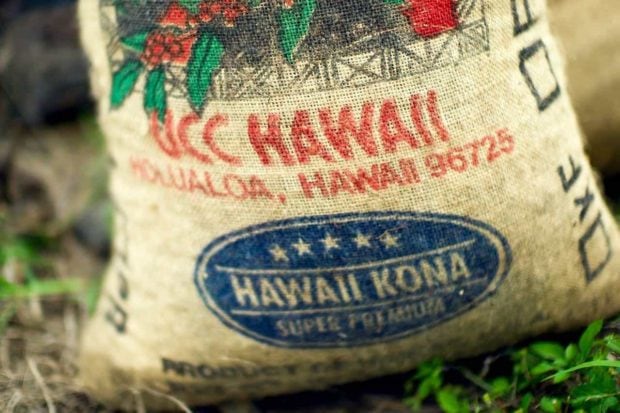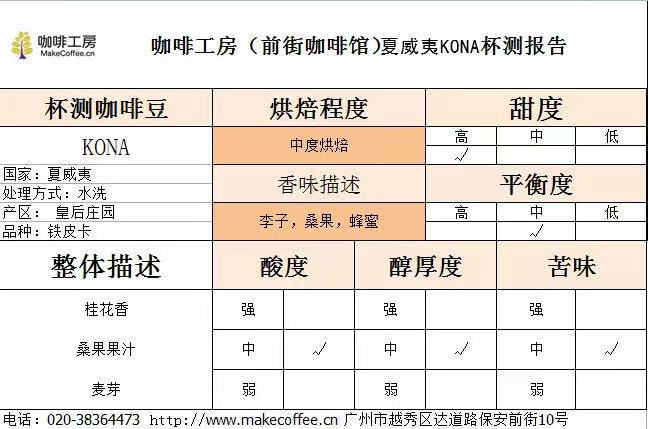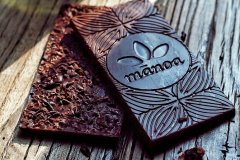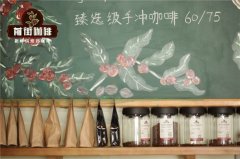Kona, why is coffee so expensive? Coffee Bean Cup Test report of Queens Manor, Hawaii for three reasons
Compared with other coffee, Hawaiian coffee is relatively expensive. The main reason for this is labour costs: coffee picking is a very labour-intensive process, and farm workers in Hawaii are paid much more than farmers in Guatemala or Ethiopia (which is a good reminder to buy fair-trade coffee as much as possible).
As the coffee farmer from Oshima explains, the cost of getting only coffee beans is $8 per pound. Add in other agricultural costs, such as land use, fertilizer and maintenance, and you can easily end up with a cost of about $14 per pound. The price does not include his labor, marketing, electricity / gas baking, bags, websites, taxes, farm mortgages, etc. When you add everything up, the average price of 100% Kona coffee is between $45 / lb. And 60 dollars per pound. This means that if you grow coffee of similar quality in countries with lower wages, you will be able to buy coffee beans at a lower price. However, considering the high demand and good reputation of Kona coffee, it is certain that despite the high price, the quality is worthy of the price!

Of course, in addition to labor costs, Waikona coffee does have its own style. Kona Coffee is the only coffee grown commercially in the United States. It grows on the slopes of the Hualalai and Mauna Loa volcanoes on the Big Island of Hawaii. Morning sunshine, afternoon rain, perfect elevation and fertile volcanic soil. These unique conditions make Kona Coffee a model for the coffee industry.
Kona coffee accounts for about 95% of all coffee on the island. The other 5 per cent consists mainly of beans grown on the coasts of Ka'u, Puna and Hamakua. There is even some coffee industry on other Hawaiian islands. Each of these coffees has its own unique taste. What kind of coffee you like best depends largely on your personal preference, just like beer and red wine.
There is a coffee from Queen Kona Manor in Hawaii on the front street. Put the relevant information in the picture below. If you are interested, you can continue to read it.

Important Notice :
前街咖啡 FrontStreet Coffee has moved to new addredd:
FrontStreet Coffee Address: 315,Donghua East Road,GuangZhou
Tel:020 38364473
- Prev

Hawaii Kona Coffee History Story Kona Coffee Food how about Chocolate and Coffee
Kona Coffee is a world-famous coffee that grows only on the slopes of two volcanoes on the big island. The porous and mineral-rich volcanic soil, coupled with often sunny mornings, but cloudy or rainy afternoons, breezes and mild nights give coffee from the big island a unique flavor. Taste the local coffee and chocolate experience, more and more Hawaiian coffee will lead
- Next

How should cooked coffee beans be stored? History of Guatemalan Coffee Development Flavor of washed bourbon Coffee beans
Guatemalan coffee has always been an important part of Qianjie coffee. Since the beginning of Qianjie, there have been 14 kinds of Guatemalan coffee. Different producing areas have different flavors and very similar flavor characteristics. Some time ago, in front of the street coffee activities, I believe you saved a lot of coffee beans, right? Worried about not having enough to drink? You can buy some more after reading this article. Today
Related
- Detailed explanation of Jadeite planting Land in Panamanian Jadeite Manor introduction to the grading system of Jadeite competitive bidding, Red bid, Green bid and Rose Summer
- Story of Coffee planting in Brenka region of Costa Rica Stonehenge Manor anaerobic heavy honey treatment of flavor mouth
- What's on the barrel of Blue Mountain Coffee beans?
- Can American coffee also pull flowers? How to use hot American style to pull out a good-looking pattern?
- Can you make a cold extract with coffee beans? What is the right proportion for cold-extracted coffee formula?
- Indonesian PWN Gold Mandrine Coffee Origin Features Flavor How to Chong? Mandolin coffee is American.
- A brief introduction to the flavor characteristics of Brazilian yellow bourbon coffee beans
- What is the effect of different water quality on the flavor of cold-extracted coffee? What kind of water is best for brewing coffee?
- Why do you think of Rose Summer whenever you mention Panamanian coffee?
- Introduction to the characteristics of authentic blue mountain coffee bean producing areas? What is the CIB Coffee Authority in Jamaica?

